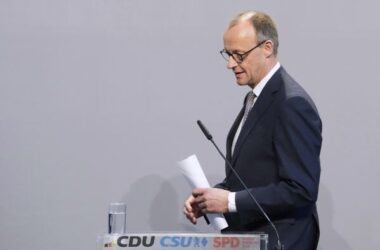Nine Socialist MEPs from Slovenia and Croatia are pushing to shut down an exhibition in the European Parliament that commemorates the Foibe Massacres. In a letter to EP President Roberta Metsola, they called the display “misleading” and “controversial,” arguing it distorts history.
The exhibition, organized by Italy’s right-wing Fratelli d’Italia (FdI) delegation, sheds light on the brutal killings and forced deportations carried out by Yugoslav Partisans during and after World War II. An estimated 300,000 people, mostly ethnic Italians and anti-Communists, were displaced. Partisan forces, acting in retaliation for fascist atrocities, executed thousands.
The Socialist MEPs didn’t mince words, claiming the exhibition is historically inaccurate and fuels division. “It’s an outrageous manipulation of history,” they wrote, insisting that the Partisan resistance remains one of Europe’s greatest victories against fascism. Slovenian historian Dr. Nevenka Troha, niece of Communist leader Lidija Šentjurc, backed their concerns.
Carlo Fidanza, head of the FdI-ECR delegation, fired back, calling the opposition a “dark moment for the European Parliament.” He accused left-wing groups of denying historical facts and dishonoring the victims of Tito’s regime. Fidanza emphasized the importance of reconciliation and pointed out that even some Slovenian EPP members, whose government previously uncovered mass graves, stood in solidarity with the exhibition.
Italian President Sergio Mattarella weighed in during a February 10 commemoration, condemning both fascist and Communist crimes. He described the massacres as a “dark chapter” and rejected any attempts to erase history. “The memory of these victims must be preserved, not manipulated for political division,” he stated.
Meanwhile, Italian leaders like Deputy PM Matteo Salvini and Foreign Minister Antonio Tajani echoed similar sentiments, emphasizing the importance of remembrance. Salvini dismissed efforts to “rewrite history,” while Tajani insisted that honoring the past is about truth, not retaliation.
As tensions rise, one thing is clear—Europe’s struggle over historical memory is far from over.




